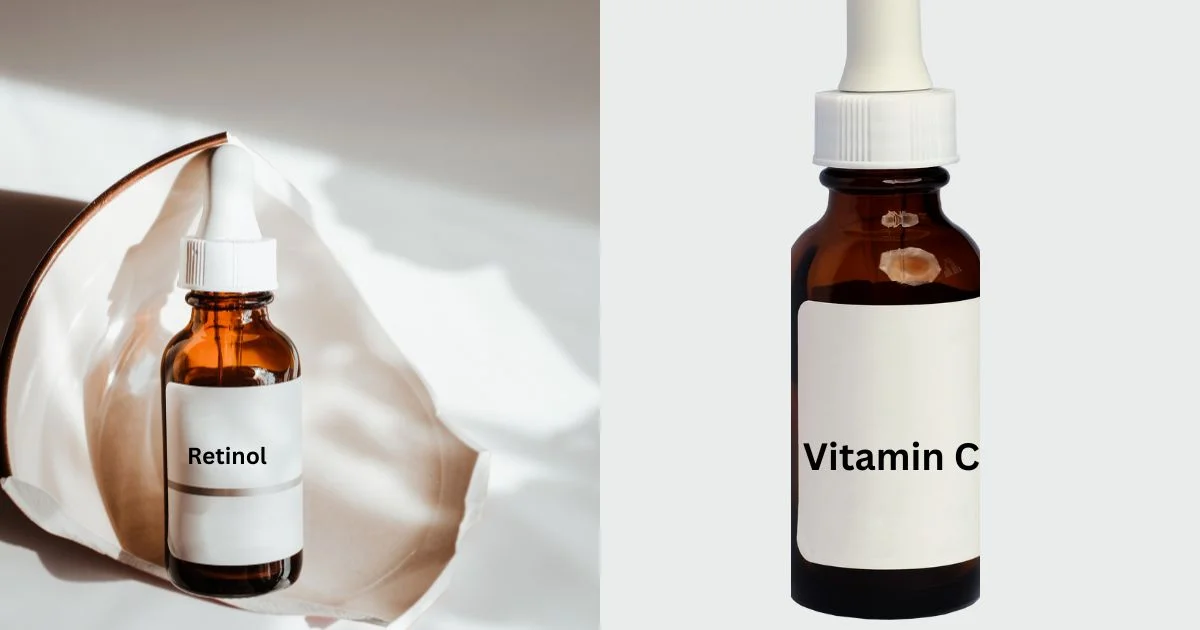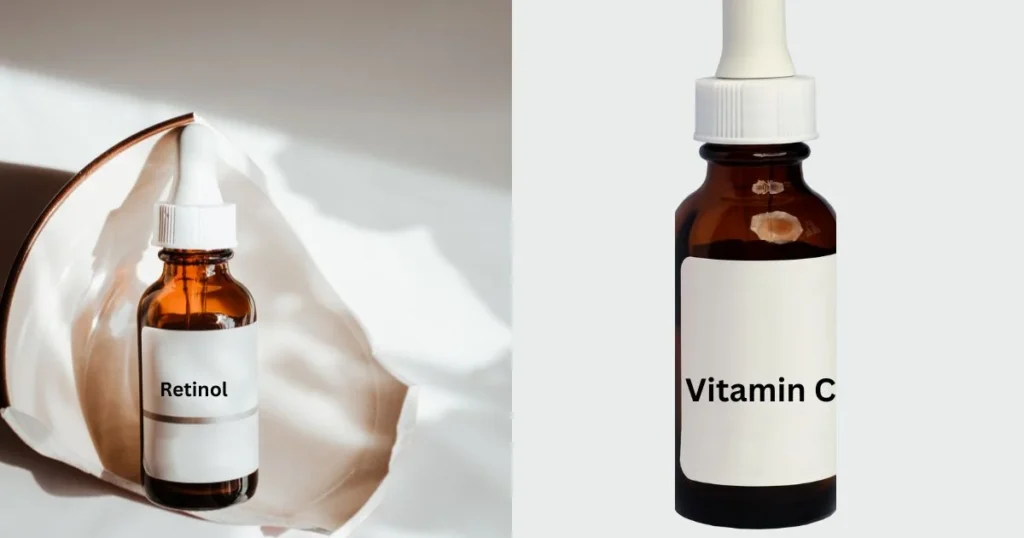Retinol and Vitamin C: Unlocking the Secrets to Youthful Skin
Retinol and Vitamin C are two powerful skincare ingredients that have gained immense popularity in recent years. Retinol, a derivative of Vitamin A, is widely recognized for its ability to improve skin texture, reduce the appearance of wrinkles, and enhance overall skin tone. On the other hand, Vitamin C, a potent antioxidant, is known for its brightening effects, helping to fade dark spots and promote a more radiant complexion. Individually, these ingredients offer impressive skincare benefits, but when combined, their effectiveness is further enhanced. This combination of Retinol and Vitamin C has become a staple in many skincare routines, providing a comprehensive approach to achieving healthier, more youthful-looking skin.
In this article, we will discuss the benefits, usage, and effectiveness of these two key ingredients, which have long been hailed as essential elements in skincare routines. By understanding how retinol and vitamin C work together, you can harness their potential to reveal a rejuvenated and glowing complexion.
 Retinol and Vitamin C: Exploring Their Individual Roles
Retinol and Vitamin C: Exploring Their Individual Roles
Retinol: The Time-Tested Anti-Aging Hero
Retinol, derived from vitamin A, has gained a reputation as a time-tested anti-aging hero. Its remarkable ability to stimulate collagen production and accelerate cell turnover makes it an indispensable ingredient in skincare products. With consistent use, retinol can effectively minimize fine lines, wrinkles, and age spots, leaving your skin looking smoother and more youthful.
Vitamin C: The Radiance Booster
Vitamin C, also known as ascorbic acid, is renowned for its powerful antioxidant properties. This essential nutrient plays a crucial role in neutralizing free radicals and protecting the skin against environmental damage. Additionally, vitamin C aids in brightening the complexion, reducing hyperpigmentation, and promoting an overall radiance.
You may also like..Can Niacinamide and Retinol be used together?The Dynamic Duo for Skincare Retinol Body Lotion: Unlocking the Secrets to Youthful Skin Niacinamide and Glycolic Acid:10 effective benefits of the Power Duo for Skin Care Can Niacinamide and Salicylic Acid be used together? 10 Powerful benefits
The Synergy of Retinol and Vitamin C
Harnessing Their Complementary Benefits
When combined, retinol and vitamin C create a synergistic effect that amplifies their individual benefits. Retinol boosts collagen production and enhances skin renewal, while vitamin C aids in the repair and protection of skin cells. Together, they work harmoniously to combat signs of aging, improve skin texture, and restore a youthful glow.
10 Benefits of Retinol for the skin
Retinol offers a multitude of benefits for the skin. Here are ten notable advantages:
- Reduced wrinkles and fine lines: Retinol stimulates collagen production, which helps to improve skin elasticity and minimize the appearance of wrinkles and fine lines.
- Improved skin texture: By promoting cell turnover, retinol helps to refine and smooth the skin’s surface, resulting in a more even and youthful texture.
- Enhanced skin firmness: Regular use of retinol can help improve skin firmness and tightness, providing a more lifted and toned appearance.
- Diminished hyperpigmentation: Retinol aids in fading dark spots, sunspots, and age spots, leading to a more even complexion.
- Reduced acne and breakouts: Retinol helps to unclog pores, regulate oil production, and reduce inflammation, making it effective in treating acne and preventing breakouts.
- Improved skin hydration: Retinol promotes the production of hyaluronic acid, a natural moisturizer that helps to hydrate and plump the skin.
- Minimized appearance of pores: Regular use of retinol can help reduce the size and visibility of pores, giving the skin a smoother and more refined look.
- Enhanced skin radiance: Retinol boosts cell turnover and exfoliation, revealing fresher, brighter skin and a more radiant complexion.
- Improved skin tone and evenness: Retinol helps to fade discoloration and promote a more balanced skin tone, resulting in a more uniform complexion.
- Overall skin rejuvenation: By addressing multiple skin concerns, retinol helps to rejuvenate the skin, leaving it looking healthier, more vibrant, and youthful.
10 benefits of vitamin c for skin
Vitamin C offers numerous benefits for the skin. Here are ten notable advantages:
- Powerful antioxidant protection: Vitamin C is a potent antioxidant that helps to neutralize free radicals, protecting the skin from environmental damage and oxidative stress.
- Collagen synthesis: Vitamin C plays a crucial role in collagen synthesis, which helps to improve skin elasticity, reduce wrinkles, and maintain a youthful appearance.
- Brightening effect: Vitamin C helps to inhibit melanin production, leading to a brighter and more even complexion. It can also fade dark spots and hyperpigmentation.
- Enhanced wound healing: Vitamin C promotes the formation of new blood vessels and aids in tissue repair, facilitating faster healing of wounds, scars, and blemishes.
- Sun damage protection: While not a substitute for sunscreen, vitamin C can provide an additional layer of protection against harmful UV rays, minimizing sun damage and photoaging.
- Improved skin hydration: Vitamin C helps to strengthen the skin’s barrier function, retaining moisture and preventing transepidermal water loss, resulting in improved hydration.
- Reduced inflammation: Vitamin C has anti-inflammatory properties, making it beneficial for soothing and calming irritated or sensitive skin conditions.
- Antioxidant regeneration: Vitamin C helps to regenerate other antioxidants in the skin, such as vitamin E, maximizing their effectiveness and providing enhanced protection.
- Smoother skin texture: Vitamin C promotes cell turnover and exfoliation, leading to a smoother skin texture and a more refined appearance.
- Overall skin rejuvenation: By addressing multiple skin concerns and promoting a healthier complexion, vitamin C helps to rejuvenate the skin, giving it a refreshed and revitalized look.
10 benefits of using retinol and vitamin c together
- Enhanced collagen production: The combination of retinol and vitamin C stimulates collagen synthesis synergistically, resulting in improved skin elasticity, firmness, and reduced wrinkles.
- Increased antioxidant protection: Retinol and vitamin C both possess potent antioxidant properties, working together to provide enhanced protection against free radicals and environmental damage.
- Improved skin tone and texture: Retinol promotes cell turnover and exfoliation, while vitamin C brightens and evens out the complexion, resulting in a smoother, more radiant skin texture.
- Diminished hyperpigmentation: The combination of retinol and vitamin C effectively targets and fades dark spots, sunspots, and other forms of hyperpigmentation for a more even skin tone.
- Reduced acne and breakouts: Retinol helps unclog pores and regulate oil production, while vitamin C’s anti-inflammatory properties help calm and heal existing breakouts, making the combination effective in treating acne.
- Enhanced sun protection: Vitamin C boosts the effectiveness of sunscreen, providing additional protection against harmful UV rays when used in conjunction with retinol.
- Accelerated skin healing: Retinol and vitamin C work together to speed up the healing process of wounds, scars, and blemishes, resulting in faster skin repair and reduced post-inflammatory hyperpigmentation.
- Increased skin hydration: Retinol promotes the production of hyaluronic acid, while vitamin C strengthens the skin’s barrier function, resulting in improved moisture retention and hydration.
- Balanced skin rejuvenation: Retinol and vitamin C address multiple signs of aging and skin concerns, such as wrinkles, hyperpigmentation, and dullness, providing comprehensive rejuvenation and a more youthful appearance.
- Synergistic efficacy: The combination of retinol and vitamin C amplifies each other’s benefits, creating a powerful synergy that maximizes their individual effects and delivers remarkable overall improvements in the skin’s health and appearance.
Steps to use retinol and vitamin c together
In Morning
Step 1: Cleanse your face thoroughly with a gentle cleanser.
Step 2: In the morning, apply a few drops of vitamin C serum to your face.
Step 3: Gently massage the vitamin C serum into your skin.
Step 4: Allow the vitamin C serum to fully absorb into the skin.
Step 5: Apply a broad-spectrum sunscreen with SPF 30 or higher to protect your skin from UV damage.
At Night
Step 1: At night, ensure your skin is completely dry after cleansing.
Step 2: Take a pea-sized amount of retinol cream or serum.
Step 3: Gently massage the retinol into your face.
Step 4: If needed, follow with a moisturizer to soothe and hydrate the skin.
Bonus tips
- Start by using retinol every other night, gradually increasing the frequency over time.
- Be consistent with using both retinol and vitamin C in your skincare routine.
- Monitor your skin for any signs of excessive dryness, redness, or irritation.
- Adjust the usage of retinol and vitamin C according to your skin’s needs.
- Perform a patch test before using new products to check for any adverse reactions.
Conclusion
In conclusion, the combination of retinol and vitamin C presents a dynamic duo for skincare. Retinol offers remarkable benefits such as reduced wrinkles, improved texture, and diminished hyperpigmentation, while vitamin C brings its own advantages like brightening, antioxidant protection, and collagen synthesis.
When used together, these powerhouse ingredients create a comprehensive approach to rejuvenating the skin, addressing multiple concerns such as signs of aging, uneven tone, and dullness. The synergistic effect of retinol and vitamin C enhances their individual properties, resulting in a more vibrant, youthful complexion. With consistent use and proper application, this dynamic combination can help achieve healthier, glowing skin.
Disclaimer: It’s important to note that individual results may vary when using retinol and vitamin C. The information provided is not intended to replace professional medical advice, and it’s advisable to consult with a dermatologist or skincare professional before incorporating these ingredients into your routine. Additionally, it’s crucial to perform patch tests and follow instructions provided by the product manufacturers to ensure proper usage and minimize the risk of potential side effects.
FAQs
Can I use retinol and vitamin C together?
Absolutely! Retinol and vitamin C can be used together in your skincare routine. Apply vitamin C in the morning and retinol in the evening for optimal results.
Can retinol and vitamin C cause skin irritation?
While retinol and vitamin C are generally well-tolerated, some individuals with sensitive skin may experience mild irritation. Start with a lower concentration and gradually increase the dosage to minimize any potential discomfort.
How long does it take to see results?
Results may vary depending on individual factors, but noticeable improvements in skin texture and tone can typically be observed within a few weeks of consistent use.
Can I use retinol and vitamin C if I have acne-prone skin?
Yes, both retinol and vitamin C can be beneficial for individuals with acne-prone skin. Retinol helps unclog pores and reduce breakouts, while vitamin C aids in reducing inflammation and promoting skin healing.
Can I use retinol and vitamin C if I have sensitive skin?
If you have sensitive skin, it is advisable to start with lower concentrations of retinol and vitamin C and gradually increase over time. Additionally, choosing gentle formulations and incorporating a patch test can help minimize the risk of irritation.


 Retinol and Vitamin C: Exploring Their Individual Roles
Retinol and Vitamin C: Exploring Their Individual Roles

